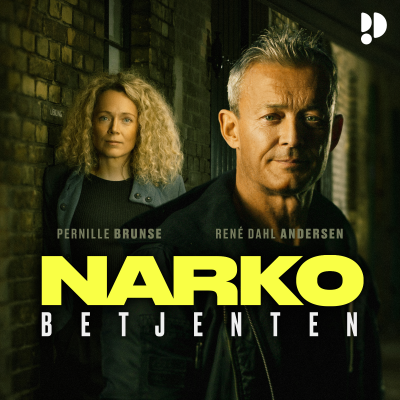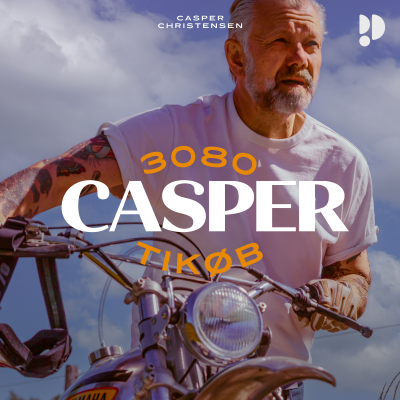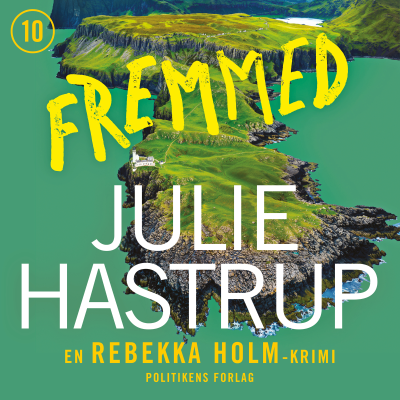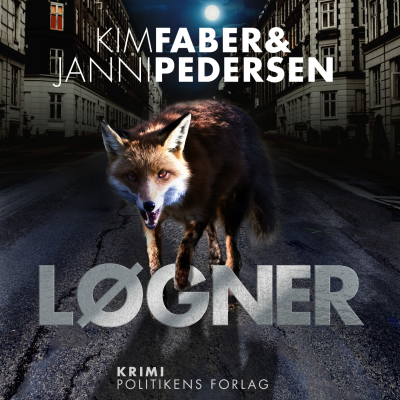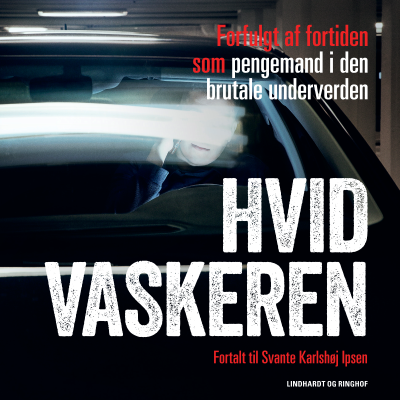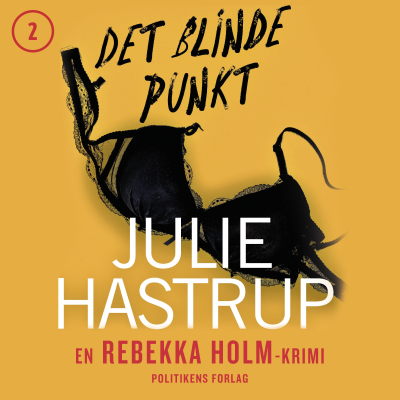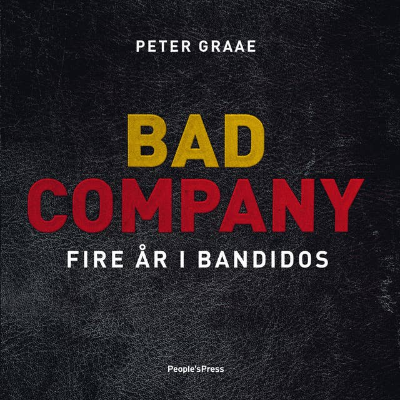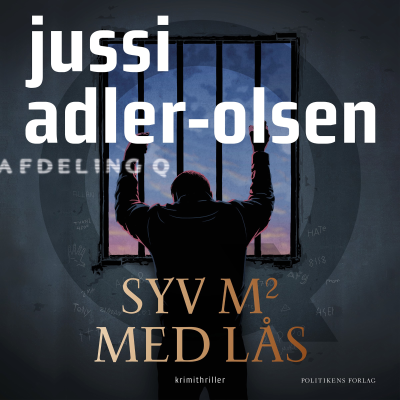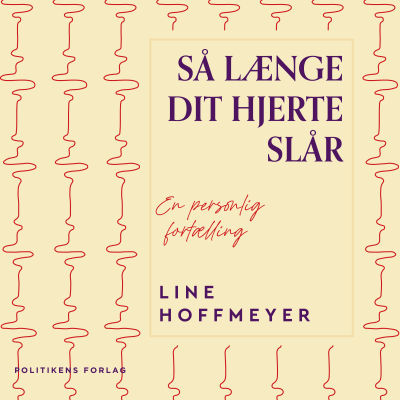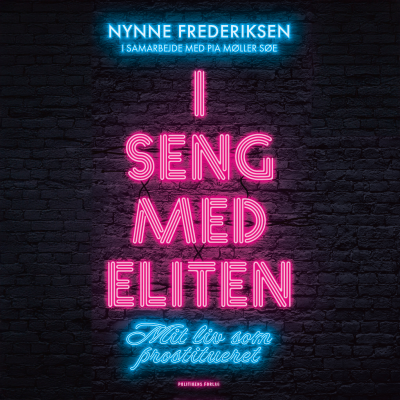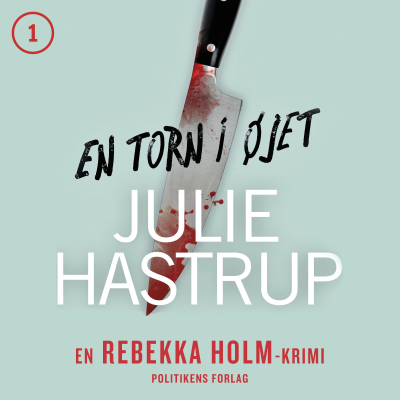
Challenging Nordic Innocence – UiS podkast
Podcast by Universitetet i Stavanger
This podcast series questions the idealized notion of the Nordic region as characterized by egalitarianism, environmentalism, and a benevolent welfare...
Start 7 days free trial
After trial, only 79,00 kr. / month.Cancel anytime.
All episodes
5 episodesIn this episode we talk to Georgia De Leeuw about her research on mining, green steel and the comfort alignment with extractivism in in the Swedish north, or indigenous Sápmi. Her PhD dissertation deals with Swedish extractivism in Sápmi through the examples of a planned iron ore mine in Gállok/Kallak and the hydrogen-based steel transition. The main aim is to understand the trust that is placed in extraction as a means to arrive at a happy, prosperous, green future. Drawing on Lacanian psychoanalysis and Sara Ahmed’s notion of the promise of happiness, she suggests that extraction constitutes an object of desire toward which people tend in an affective investment, an anticipation of happiness in the future. Despite the hopes that come with green steel to onboard processing, diversify local economies, and break with resource colony tendencies of North-South dynamics, this results in a rearticulation of the North as a resource frontier and a re-inscription of colonial relations and indigenous injustice. While the allure of the fantasy disguises alternative trajectories, she shows that the misaligned interject productive ruptures in extractive desires. The alternatives they outline echo academic calls for dematerialization, a dismantling of the growth paradigm for the sake of reciprocity, care, and regeneration. These ruptures of the extractive allure may serve as entry points into anti-extractive futures that hold real potential to dismantle the North as a treasure trove for extraction. The dissertation builds on fieldwork data consisting of 65 interviews, twelve observations, and secondary material that is read as performative expressions through narrative analysis. Georgia de Leeuw holds a PhD in Political Science at Lund university. She is a Post-Doctoral Researcher at Human Rights Studies, Department of History at Lund University focusing on grievances in green transition designs in Swedish municipalities. Link to English transcript. [https://podcast.uis.no/media/Challenging_Nordic_Innocence/Challenging_nordic_Innocence.pdf] Link to Georgia de Leeuw’s profile at the University of Lund. https://www.svet.lu.se/en/georgia-de-leeuw [https://www.svet.lu.se/en/georgia-de-leeuw] Link to dissertation: The comfort of alignment: Mining, green steel, and killjoy desires in Sweden/Sápmi. https://www.svet.lu.se/en/georgia-de-leeuw/publication/ac6ef315-bddd-43a6-a475-b01511bb09c7 [https://www.svet.lu.se/en/georgia-de-leeuw/publication/ac6ef315-bddd-43a6-a475-b01511bb09c7]
Dansk Beskrivelse I denne episode har vi besøg af forskerne Naja Dyrendom Graugaard, Josefine Lee Stage og Victoria Pihl Sørensen, som i skrivende stund er i gang med en artikkel om den spiralprogrammeti Kalaallit Nunaat (Grønland) fra 1960erne og 1970erne . Det er ikke uden grund, at man i Kalaallit Nunaat omtaler dette som et folkemord begået af den danske kolonimagt. I episoden diskuterer Naja, Josefine og Victoria den danske kolonimagts motivation og ideologi som lå til grund for programmet og hvorfor programmet, som først blev bredt offentlig kendt i 2022 er blevet modtaget med så stor overraskelse, for programmet var velkendt og på ingen måde hemmeligholdt. Hvad siger det om dansk selvforståelse, om den danske stats syn på Kalaallit Nunaats oprindelige befolkning, om velfærdsstaten og ikke mindst om behovet for en ny dekolonial historieskrivning baseret på kalaallit erfaringer og viden? English Summary In this episode, we are joined by researchers Naja Dyrendom Graugaard, Josefine Lee Stage and Victoria Pihl Sørensen, who are currently writing an article about the so-called IUD program in Kalaallit Nunaat (Greenland) from the 1960s and 1970s. It is not without reason that Kalaallit Nunaat refers to this as a genocide committed by the Danish colonial power. In the episode, Naja, Josefine and Victoria discuss the Danish colonial power’s motivation and ideology behind the program and why the program, which only became widely publicised in 2022, was received with so much surprise, as the campaign was well known and in no way secretive. What does it say about Danish self-understanding, the Danish state’s view of Kalaallit Nunaat’s indigenous population, the welfare state and, not least, the need for a new decolonial history based on Kalaallit experiences and knowledge? Link til Dansk transkribering [https://podcast.uis.no/media/Challenging_Nordic_Innocence/Nordic_innocence_4_transkribt_DK.pdf] Link to English transcript [https://podcast.uis.no/media/Challenging_Nordic_Innocence/Nordic_innocence_4_transkribt_EN.pdf] Link to Naja Dyrendom Graugaard profile: https://najagraugaard.academia.edu/ [https://najagraugaard.academia.edu/] Link to Josephine Lee Stage profile: https://pure.au.dk/portal/da/persons/jlstage%40edu.au.dk [https://pure.au.dk/portal/da/persons/jlstage%40edu.au.dk] Link to Victoria Pihl Sørensen profile: https://pma.cornell.edu/victoria-sorensen [https://pma.cornell.edu/victoria-sorensen] Articles (Open Access): Graugaard, N. D., & Ambrosius Høgfeldt, A. (2023). The silenced genocide : Why the Danish intrauterine device (IUD) enforcement in Kalaallit Nunaat calls for an intersectional decolonial analysis. Kvinder, Køn & Forskning, 36(2), 162–167. https://doi.org/10.7146/kkf.v36i2.137309 [https://doi.org/10.7146/kkf.v36i2.137309] Graugaard, N. D., Pihl, V. S., Stage, J. L. (forthcoming). Colonial Reproductive Coercion and Control in Kalaallit Nunaat – The Overlooked Role of Racism in Denmark’s IUD Program. Special issue on ‘Race, racialization, and reproduction in the Nordic context, NORA: Nordic Journal of Feminist and Gender Research. Sørensen, V. E. P. (2023). “In Women’s Hands”: Feminism, Eugenics and Race in Interwar Denmark. Kvinder, Køn & Forskning, 36(2), 46–62. https://doi.org/10.7146/kkf.v36i2.132611 [https://doi.org/10.7146/kkf.v36i2.132611]
In this episode we have with us Jean Thierry and Tobias Gregory from the organisation “Almen Modstand” which was formed in response to the 2018 so-called ghetto law that put strict requirements on the Danish General Housing sector. There are about half a million general housing homes in Denmark (app. 20% of total housing stock). What characterizes this sector is that it is open to all, not only low-income people. These homes are by right organized in associations democratically controlled by the residents themselves and no profit can be extracted. The rent is therefore also usually lower than in the private housing market. About 25% of the homes can be used by municipalities to house low-income families, refugees, people with disabilities and so forth. With the introduction of the “ghetto” law in 2018, the government put strict and arbitrary requirements on educational level, ethnic/national origin, income levels, etc for residents. If a general housing association or neighborhood does not live up to the requirements stipulated in the law, the association is put on the so-called ghetto list. If an association remains on the list for a number of years, the association can be forced to evict residents, sell off homes to private investors or even forced to demolish homes in order to get off the list again. Almen Modstand was formed to resist the law, organize residents, and expose its racist and capitalist logics. You can read more via these links: * You can read more via these links: * Learn more about Almen Modstand: www.almenmodstand.dk [http://www.almenmodstand.dk] * Read more about the litigation case against the Danish Ministry of Transport and Housing by the residents of Mjølnerparken: https://www.justiceinitiative.org/litigation/tenants-of-mjolnerparken-v-danish-ministry-of-transport-and-housing [https://www.justiceinitiative.org/litigation/tenants-of-mjolnerparken-v-danish-ministry-of-transport-and-housing] * Other resources: * https://www.theguardian.com/commentisfree/2022/jun/27/denmark-ghetto-law-eviction-non-western-residents-housing-estates [https://www.theguardian.com/commentisfree/2022/jun/27/denmark-ghetto-law-eviction-non-western-residents-housing-estates] * https://journals.sagepub.com/doi/abs/10.1177/0308518X221141427 [https://journals.sagepub.com/doi/abs/10.1177/0308518X221141427] * https://journals.sagepub.com/doi/abs/10.1177/09697764231165202 [https://journals.sagepub.com/doi/abs/10.1177/09697764231165202] You can find a transcription here (pdf, opens in new tab) [https://podcast.uis.no/media/Challenging_Nordic_Innocence/transkripsjon/Transkripsjon_Episode_3.pdf]
In this episode, we are joined by Aili Keskitalo from Amnesty International and former president of the Sámì Parliament in Norway and PhD fellow at the University of Stavanger Cecilie Larsen to talk about green colonialism and the South Sámì struggles against the Norwegian government’s wind farm concessions around Fosen in central Norway. In 2010 the Norwegian state granted permission to build several large-scale wind farms on the Sámi ancestral lands of Fosen that are vital for Sámi reindeer herding and hence a vital part of South Sámi culture. The Fosen case, is the latest manifestation of continuous discrimination against indigenous people in Norway. The Supreme Court ruled against the Norwegian State in 2021, yet the farms are still in operation. While a few concessions have been made, the Norwegian state goes to great lengths to ignore the supreme court ruling despite massive Sámì protests and mobilization. With Cecilie and Aili, we discuss the relationship between the Norwegian state and indigenous communities, and how the pursuit of green growth leads to further appropriation of Sámi lands and attack on Sámi culture. See these links if you are interested in reading more about the Fosen case: Norwegian National Human Rights Institution assessment of supreme court ruling [https://www.nhri.no/en/2023/about-the-wind-farms-on-fosen-and-the-supreme-court-judgment/] Wind Energy on Trial in Saepmie: Epistemic Controversies and Strategic Ignorance in Norway’s Green Energy Transition [https://arcticreview.no/index.php/arctic/article/view/5586/9021] You can find a transcription here (pdf, opens in new tab) [https://podcast.uis.no/media/Challenging_Nordic_Innocence/transkripsjon/Fosen_Korrektur.pdf]
This episode introduces several themes surrounding justice. In this first attempt, we have gathered the brilliant scholars Liv Sunnercrantz and Andy Lautrup to discuss environmental justice, social justice, and spatial justice in the Nordic Region. We think about the relationship between the practical and the theoretical, positionality, and the multiple and complex ways that justice can be conceived and who conceives it. We also delve into the Nordic Region and the surrounding discourses of goodness as explicitly Scandinavian. Furthermore, the conversation reflects on whether justice is a useful tool for criticizing systemic wrongdoings or if justice is an inherent part of a structure producing injustices, thus being unproductive for facilitating change. https://www.uis.no/en/research/social-and-spatial-justice (Åpnes i nytt vindu) [https://www.uis.no/en/research/social-and-spatial-justice] Du finner transkripsjon av episoden her (pdf, åpnes i nytt vindu) [https://podcast.uis.no/media/Challenging_Nordic_Innocence/transkripsjon/social_and_spatial_justice.pdf]
Available everywhere
Listen to Podimo on your phone, tablet, computer or car!
A universe of audio entertainment
Thousands of audiobooks and exclusive podcasts
No ads
Don't waste time listening to ad breaks when listening to Podimo's content.
Start 7 days free trial
After trial, only 79,00 kr. / month.Cancel anytime.
Exclusive podcasts
Ad free
Non-Podimo podcasts
Audiobooks
20 hours / month






